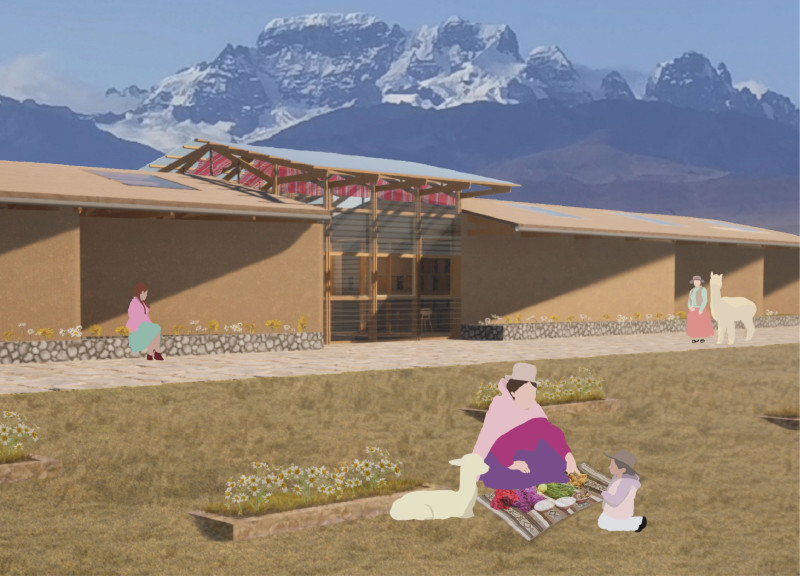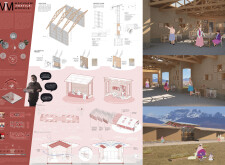5 key facts about this project
## Overview
The Macusani Textile Module is located in a mountainous region, emphasizing the interplay between contemporary architectural design and traditional craftsmanship. The project responds to the specific needs of the local community, which consists primarily of textile artisans, by providing functional spaces that support both artistic expression and communal engagement. The design aims to create an environment that fosters cultural identity while adhering to principles of sustainability.
## Spatial Strategy
The modular design of the Macusani Textile Module offers adaptability for various activities, including workshops and community gatherings. Each module can function independently or be combined with others, allowing for both scalability and intimate setups. The interior layout promotes fluid movement and interaction among users, incorporating versatile workspaces equipped with modern amenities while retaining a rustic aesthetic. Additionally, thoughtfully designed outdoor areas extend the functional capacity of the module, enabling artisans to engage with their surroundings.
## Materiality and Sustainability
The project employs local materials, such as adobe, timber, textiles, and stone, which not only reflect the region's building traditions but also enhance environmental sustainability. Adobe provides natural insulation, while local timber contributes to structural integrity and warmth. Handwoven textiles serve both functional and decorative purposes, celebrating the community’s cultural heritage. The inclusion of large windows enhances natural light and visual connections to the landscape, further minimizing ecological impact. This strategic material selection underlines the project's commitment to sustainable building practices, reinforcing the artisans' relationship with their environment.




















































